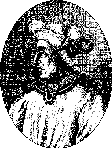|  |
Published 1690 |
Extent and End of Civil Government |
Paragraph #26 - On Property
Though the earth and all inferior creatures be common to all men, yet every man has a "property" in his own "person." This nobody has any right to but himself. The "labour" of his body ad the "work" of his hands, we may say, are properly his. Whatsoever, then, he removes out of the state that Nature hath provided and left it in, he hath mixed his labour with it, and joined to it something that is his own, and thereby makes it his property. It being by him removed from the common state Nature placed it in, it hath by this labour something annexed to it that excludes the common right of other men. For this "labour" being the unquestionable property of the labourer, no man but he can have a right to what that is once joined to, at least where there is enough, and as good left in common for others.
Paragraph #27-28 partial
He that is nourished by the acorns he picked up under an oak, or the apples he gathered from the trees in the wood, has certainly appropriated them to himself. Nobody can deny but the nourishment is his. I ask, then, when did they begin to be his? When he digested? Or when he ate? Or when he boiled? Or when he brought them home? Or when he picked them up? And it is plain, if the first gathering made them not his, nothing else could. That labour put a distinction between them and common. That added something to them more than Nature, the common mother of all, had done, and so they become his private right. ... Though the water running in the fountain be every one's, yet who can doubt but that in the pitcher is his only who drew it out? His labour hath taken it our of the hands of Nature where it was common, and belonged equally to all her children, and hath thereby appropriated it to himself.
